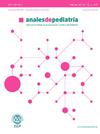Asesoramiento genético en la era de la secuenciación masiva
IF 1.5
4区 医学
Q2 PEDIATRICS
引用次数: 0
Abstract
Advances in next-generation sequencing (NGS) technologies have made the detection of the molecular causes of paediatric diseases increasingly affordable, accessible and rapid. While exome sequencing and genome sequencing were until recently only available for research, they are now used in health care practice. The clinical application of NGS has raised many challenges in genetic counselling for families in terms of the interpretation of test results and incidental findings, as well as technical limitations in the event of inconclusive results. Given the impact of genetic results in clinical decision-making, specialized knowledge is required of the techniques and methods used in genetic studies, their advantages and limitations, and their potential psychosocial, legal and ethical impact on patients, relatives and health care professionals. The ethical implications of parents giving consent to genetic testing in their offspring and the potential disclosure of genetic diseases for which there are limited therapeutic options are still under debate. In this review, we provide an overview of all these aspects, including the advantages and limitations of current NGS techniques, and discuss the possibilities of upcoming solutions.
大测序时代的基因咨询
新一代测序(NGS)技术的进步使儿科疾病分子病因的检测日益负担得起、容易获得和迅速。虽然外显子组测序和基因组测序直到最近才可用于研究,但它们现在已用于医疗保健实践。NGS的临床应用在家庭遗传咨询方面提出了许多挑战,包括对测试结果和偶然发现的解释,以及在结果不确定的情况下的技术限制。鉴于遗传结果对临床决策的影响,需要对遗传研究中使用的技术和方法、它们的优点和局限性以及它们对患者、亲属和保健专业人员可能产生的社会心理、法律和伦理影响有专门的了解。父母同意对其子女进行基因检测的伦理影响,以及可能披露治疗选择有限的遗传病的问题,仍在辩论中。在这篇综述中,我们对所有这些方面进行了概述,包括当前NGS技术的优势和局限性,并讨论了即将到来的解决方案的可能性。
本文章由计算机程序翻译,如有差异,请以英文原文为准。
求助全文
约1分钟内获得全文
求助全文
来源期刊

Anales de pediatria
医学-小儿科
CiteScore
2.10
自引率
4.80%
发文量
155
审稿时长
44 days
期刊介绍:
La Asociación Española de Pediatría tiene como uno de sus objetivos principales la difusión de información científica rigurosa y actualizada sobre las distintas áreas de la pediatría. Anales de Pediatría es el Órgano de Expresión Científica de la Asociación y constituye el vehículo a través del cual se comunican los asociados. Publica trabajos originales sobre investigación clínica en pediatría procedentes de España y países latinoamericanos, así como artículos de revisión elaborados por los mejores profesionales de cada especialidad, las comunicaciones del congreso anual y los libros de actas de la Asociación, y guías de actuación elaboradas por las diferentes Sociedades/Secciones Especializadas integradas en la Asociación Española de Pediatría.
 求助内容:
求助内容: 应助结果提醒方式:
应助结果提醒方式:


